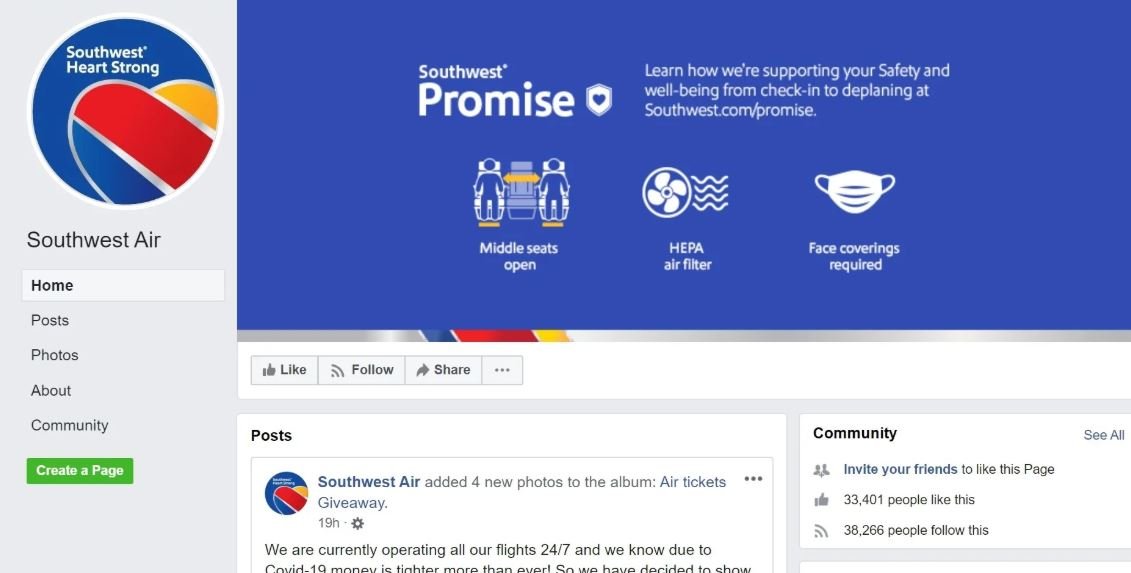A new online scam has been detected. According to information security training experts, it all began when some Facebook users found alleged advertisements from Southwest Airlines, offering 100% free round-trip flights for the first 500 people who shared and commented on the posts.
Although the post had a legitimate appearance and many users of the social network might have fallen into the trap, this is a scam in which the threat actors recorded a Facebook page and gave it a similar look to the authentic airline site. This fanpage was created just a few days ago.
On previous occasions, information security training specialists have pointed out that the operators of these fraudulent campaigns are always looking for new ways to attract the attention of unsuspecting users, placing misleading or completely false advertisements to take victims to fraudulent websites for various purposes.

In this case, the offer of supposed free air tickets is very attractive to potential victims, as this scam operates in a context where governments in multiple countries begin to relax the social estrangement measures imposed during the pandemic, so thousands of people consider this an ideal time to travel.

The number of users who have fallen in this scam is unknown, although they are expected to be few, as the ad’s positioning was very low, although it could grow as the post is shared by Facebook users.
In addition, a plane ticket is something that anyone could or would want to use, not forgetting that its cost is always considerable, so information security training specialists believe that this malicious campaign will appeal to millions of users on the social network.
Regarding the airline whose image is being falsified, Southwest Airlines is a major airline based in the U.S., characterized by offering a wide variety of flights to various destinations at a very competitive cost. Cybersecurity specialists mention that, due to its popularity as a low-cost airline, Southwest Airlines is frequently involved in such scams.
Social media users are advised to ignore any advertisements of this nature; as users we should always remember that any offer that is too good to be true, is surely a scam.
For further reports on vulnerabilities, exploits, malware variants and computer security risks, it is recommended to enter the website of the International Institute of Cyber Security (IICS), as well as the official platforms of technology companies.

He is a well-known expert in mobile security and malware analysis. He studied Computer Science at NYU and started working as a cyber security analyst in 2003. He is actively working as an anti-malware expert. He also worked for security companies like Kaspersky Lab. His everyday job includes researching about new malware and cyber security incidents. Also he has deep level of knowledge in mobile security and mobile vulnerabilities.











